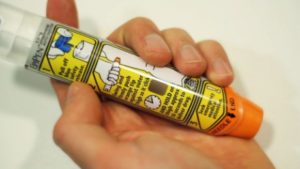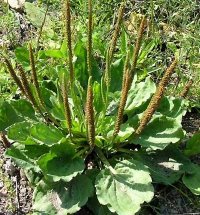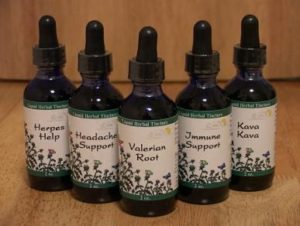As I write there is a crisis of unmedicated Texans caught in the floodwaters from Hurricane Harvey. Pharmacies are gone, home supplies inundated. For those who can shelter in place, a medicine cabinet of dated prescriptions and OTC medications is likely. Which of them is safe to take?

In the first place medications last longer in a dark, cool, dry place with minimal exposure to oxygen. Do not store them in the bathroom which is humid and hot. I keep mine in a closet opposite the bathroom in the hall. If you are saving a very small amount of medicine either transfer to a small container labled with all pertinent information- name, date, dosage, strength, prescribing doctor and what it is for. Alternatively add oxygen absorbers (those little packets or plastic circles you find in medicine and vitamin bottles) or unprocessed rice grains in a net bag to reduce degradation.
Secondly there are medications that are unsafe -as opposed to less effective-when they age. Tetracycline family antibiotics are not safe when they age becauses they can degrade into toxins. Insulin, nitroglycerin, liquid antibiotics and refrigerated prescriptions should not be taken post expiration. Also avoid aspirin that smells like vinegar when you open the bottle- enteric coated aspirin lasts longer and is easier on your stomach. Amphetamines in diet pills degrade quite quickly too.
In 1979 the FDA began requiring expiration dates. This does not mean that the drugs no longer work, but the manufacturer would no longer guarantee the potency and efficacy of the drugs after that date. This had the perverse effect of causing manufacturers to shave off years so people would repurchase items sooner, while reducing their liability if older drugs were taken. To extend expiration dates new studies are required.
The US Army had the FDA undertake a Shelf Life Extension Program study, SLEP, on100 of their most common drugs. It found that most meds stored in good conditions could last up to 5 ½ years past the expiration date. 90% lasted 15 years when kept in optimum conditions (cool, dark, and dry places.) This study was conducted on OTC medications and prescriptions. It found common drugs like Ibuprofen, Acetaminophen, allergy medicines and even various prescriptions like opioids maintained 90% potency over the duration of the study.
California Poison Control Board Toxicologist Lee Cantrell studied a cache of drugs stored since the 1960s, some 30-40 years past their expiration date, A dozen of the 14 compounds were still as potent as they were when they were manufactured, some at almost 100 percent of their labeled concentrations.
The most common problem with older medication is not in the medicines, it is us. If we think that a medication is 90% effective we might be tempted to take two pills instead of one. That means we are taking 180% of the dose, which may cause overdose problems. Even aspirin and Tylenol can cause bleeding or liver problems at high doses. If the medication is essential for life, like asthma medications the temptation is worse.
The recommended therapeutic dosage of most drugs is not what is optimal for you, but the amount that will treat the most people without serious problems. So the dosage of Prozac at 10 mg works for most people, but it worked at 40 mg for even more, although side effects were higher. 40 mg was thus the designated standard dose for years, although it has been reduced to 20 mg now. In most cases, 90% effective is within the effective therapeutic range.

EpiPens are a special case since they prevent anaphylactic shock and are needed within minutes to prevent death. The recommendation is to replace unused pens every 18 months. Toxicologist Cantrell, and his team at UCSD measured the epinephrine concentration of 40 expired EpiPens and EpiPen Jrs. They found that 29 months after expiration, the pens contained at least 90% of their stated amount of epinephrine. Pens 50 months — more than four years — past the printed expiration date had more than 84% of the medication. While new pens are preferable, an older pen could be used as long as no discoloration or precipitates are apparent because the potential benefit of using it is greater than the potential risk. this is backed by other research. For a pen that old I would inject, then follow with Benadryl or oral epinephrine. Sublingual epinephrine 40 mg tablets (FasEpi) were found to be equally effective and have a longer storage life, but requires a prescription. It may be the best form for long term prepping but bystanders are less likely to know how to use it. If

the precipitating event is an insect sting, try a spit poultice of plantain leaves (Plantago major, not the banana.) I know of plantain poultices either delaying an anaphylactic shock or preventing it altogether, so think of it as an interim measure.
Non-tetracycline antibiotics can be used, but take with raw garlic or tinctures of coptis, goldenseal, Oregon grape or other antimicrobial herbs to boost effectiveness and reduce antibiotic resistance,
Blueberry leaf, rhemannia and cinnamon can be used with a low carb diet for someone with diabetes, but it is best not combined with insulin as requirements and dosage will change and insulin-driven low blood sugar can be fatal. OTOH a knowledgeable diabetic with a good blood meter can wean off of insulin if willing to make dietary and lifestyle changes.
Raw herbs have a limited shelf life even in optimal conditions. Leaves and flowers are said to have a shelf life of 6 months to a year when aromatics are important to their usefulness. Sticks, bark and roots are longer lived in general. Minerals and herbs valued primarily for mineral content last the longest. You can increase the dosage by 10% to use older non-aromatic herbs in my experience.
Thee best way to preserve most herbs is to tincture them in alcohol. They last nearly indefinitely with a few exceptions (shepherd’s purse, cayenne, pepper) so long as alcohol is over 25%. While optim

um tincture ratios is beyond the scope of this article, a 1 part herb to 5 parts 100 proof alcohol works on a wide variety of herbs. For fresh herbs use Everclear grain alcohol at a 1:1 volume ratio as the water in the herb will dilute the alcohol. Resinous herbs like frankincense or St. John’s wort need very high alcohol- 150-195 proof. Mushrooms do best with double extraction or instead simmering dried mushrooms for at least an hour to break down chitin which locks up the medicine. Tincturing also allows you to taste the herbs, getting more from them, and to customize dosage.
Extracting in honey or vinegar translates to a shorter shelf-life and a less effective medicinal. Sharp herbal vinegar extractions like Horseradish, Thieves Vinegar or Fire Cider should be consumed within 6 months. Older formulations may be enough for mild respiratory infections but not strong enough for pneumonia. A clove of minced fresh garlic coated in honey, taken every 2 hours can often address either viral or bacterial pneumonia.
You can also use essential oils topically or diffused for medicinal purposes. Make sure they have limited contact with air or sunlight even if it means transferring to a smaller bottle. They are quite concentrated and you need to know how to use them. Robert Tisserand has a good Facebook group that discusses safety. Always dilute, even lavender and tea tree essential oils, for topical use. The only time you should take them internally is for something like gangrene and then take drops in olive or coconut oil, NOT water. Don’t use peppermint or eucalyptus EOs near the face of children under 10, even diluted. Inform yourself before a disaster strikes and not from MLM companies.
If you live in an area where evacuation from flooding, fire or civil unrest is likely, put a quantity of all your necessary meds and supplements into a go bag that you can grab quickly, Remember to rotate these so they remain potent. This way you can remain safe even under severe conditions.

